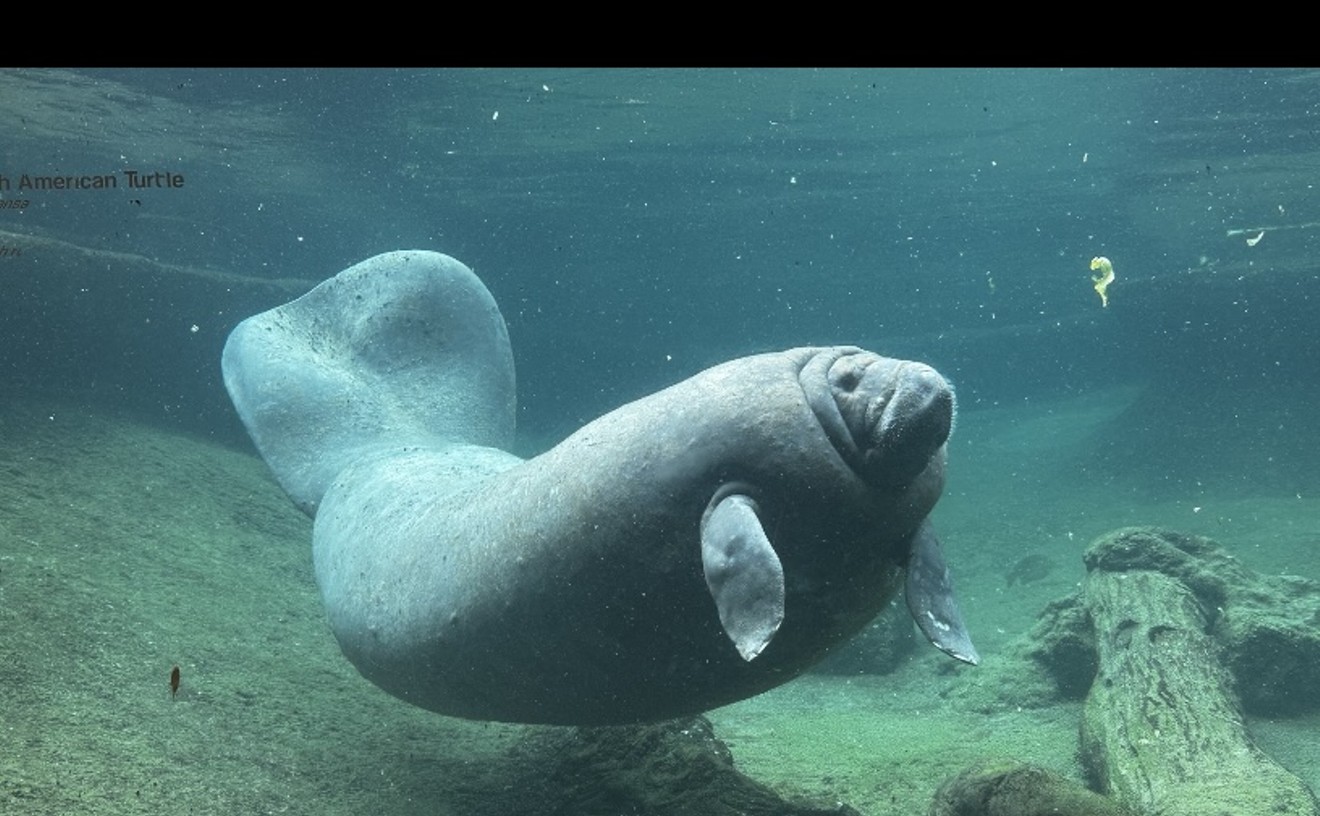The U.S. Senate seems close to rolling back many of the banking protections adopted after the 2008 financial crisis. A bill derisively nicknamed the "Bank Lobbyist Act" would roll back consumer-protection and monitoring rules for some of the biggest banks in America and even make it easier for banks to hide racist mortgage-lending discrimination. The Congressional Budget Office ominously warned this week the measure could increase the risk of another financial crisis.
Yet a group of 16 Democrats this week still voted to advance the legislation, including Florida's Sen. Bill Nelson. Why on Earth would he support a sweeping rollback of laws designed to protect millions of his constituents from living through another crash?
Well, there's one Florida firm that the so-called Bank Lobbyist Act would help immensely, and that firm also happens to have donated tens of thousands of dollars to Nelson's campaigns over the years. SunTrust Bank, an Atlanta-based chain with a heavy presence in Florida, has donated $32,850 to his three Senate campaigns since 2000, according to the Center for Responsive Politics. OpenSecrets also notes Nelson has two 30-year mortgages with SunTrust, with a combined value between $750,000 and $1.5 million as of 2015.
SunTrust is one of the loudest corporate voices fighting for the bill, S 2155. Under current law, "midsize" banks such as SunTrust are subject to the same regulations under the landmark Dodd-Frank Wall Street-reform bill as even more massive Wall Street firms, including JPMorgan Chase and Citigroup. These so-called midsize banks (which Intercept banking reporter David Dayen refers to as "stadium banks" because they're still large enough to purchase the naming rights for sports stadiums) now want the Senate to push the "floor" for those regulations from the current $50 billion in assets to $250 billion. As critics have pointed out, doing so would remove 25 of the 40 largest banks in America from federal oversight.
The bill's proponents argue that the measure simply removes tiny "community banks" from Dodd-Frank oversight, but virtually everyone who has read the text says this is a gross mischaracterization. As it stands, Dodd-Frank forces the nation's largest banks to report all kinds of data to the federal government, including information that helps people of color make sure they're not victims of discrimination. (Racist lending discrimination is still rampant, and Wells Fargo employees were famously caught in 2009 referring to black mortgage applicants as "mud people.")
The bipartisan group of lawmakers that voted to advance the bill this week (including Democrats Tim Kaine, Joe Manchin, Heidi Heitkamp, and Claire McCaskill) did so despite loud protests from the experts who wrote the Dodd-Frank provisions, including ex-Federal Reserve Chair Paul Volcker, and the Congressional Budget Office.
There's not even a good reason for the changes. Community, midsize, and even large banks are doing just fine under Dodd-Frank — especially since they recently received a huge gift package from last year's GOP tax-reform bill. Still, the midsize "stadium banks" want more. SunTrust was one of 13 banks that sent a letter to the Senate's Committee on Banking, Housing, and Urban Affairs this past Monday begging members to support the bill:
SunTrust isn't the only midsize bank that has heaped money on Nelson's senatorial campaigns. He has taken $14,500 from Regions Bank, which also has a large footprint in Florida. Citizen's Bank, Ally, American Express, BNP Paribas, BBVA Compass, and Comerica each gave amounts less than $10,000. The trade groups American Bankers Association and Florida Bankers Association have also contributed. (Nelson's campaign didn't respond to a message from New Times asking why he's supporting the bill or whether the donations played a role.)Today, 13 big banks wrote a sweet thank you note to the Republicans – and Democrats – who support the #BankLobbyistAct. These banks got $30B in bailouts just a few years ago, but they are still able to get Senators of both parties to do their bidding and roll back the rules. pic.twitter.com/M2bMtkoU7r
— Elizabeth Warren (@SenWarren) March 5, 2018
But as the Intercept reported in a feature story, lobbyists for some of the biggest banks in America, including Citigroup, are aggressively pushing the bill's sponsors to loosen rules for Wall Street too. Citigroup, especially, wants to ease what's called the "supplementary leverage ratio" — a fancy banking term for how much debt a bank is legally allowed to take on compared to the assets it holds. Big banks were ultimately forced to take on less debt after the 2008 recession.
But Nelson and others are obviously listening to their donors. The major banks asking for carve-outs in the legislation — Citigroup, Bank of America, JPMorgan Chase, and Wells Fargo — have dumped tens of thousands of combined dollars into Nelson's coffers. Bank of America, in particular, has pumped more than $30,000 into his senatorial bids.
Progressives, people with generally sane opinions, and basically everyone outside a small network of filthy-rich banking executives
"Senate Republicans voted unanimously for the #BankLobbyistAct," she tweeted. "But this bill wouldn’t be on the path to becoming law without the support of these Democrats. The Senate just voted to increase the chances your money will be used to bail out big banks again."











